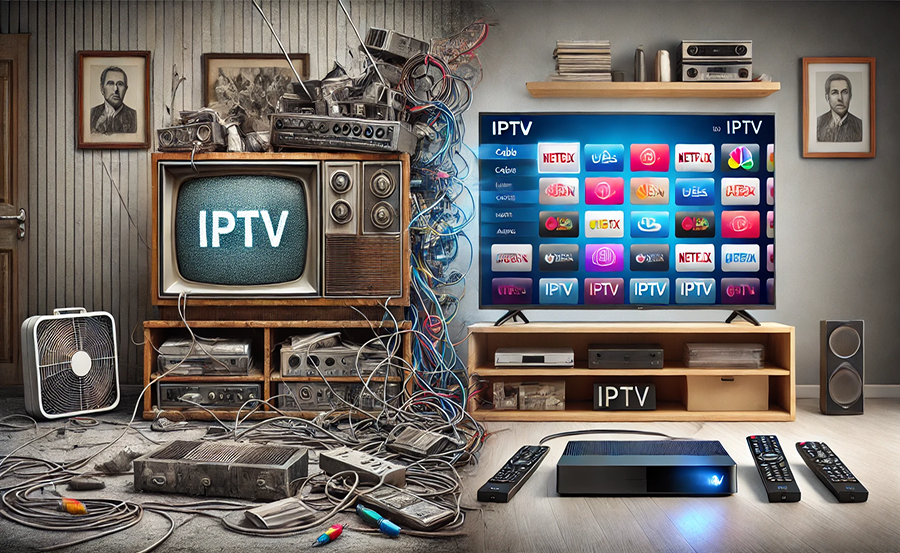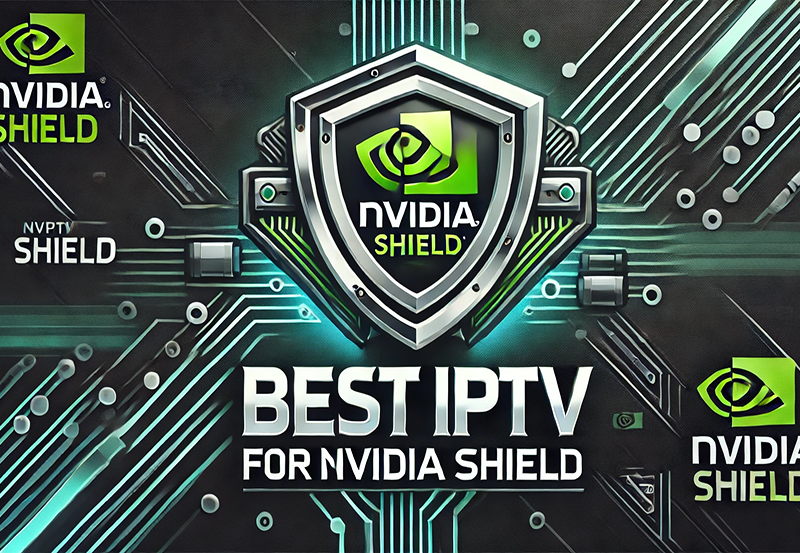In today’s world, where technology rapidly evolves, entertainment habits are shifting dramatically. Many individuals, alongside businesses, are increasingly exploring alternatives to traditional cable TV. The advent of Internet Protocol Television (IPTV) has offered a fresh, dynamic way to consume content, leaving numerous questioned by its efficiency. This comprehensive article aims to unravel the economic advantages of making the transition from cable to IPTV.
Understanding IPTV: A Simple Explanation
Before diving into cost-effectiveness, let’s unravel what IPTV actually is. Internet Protocol Television (IPTV) enables the streaming of television content via an Internet Protocol (IP) network, quite unlike traditional terrestrial, satellite signal, or cable television. This represents a significant leap in the delivery of multimedia content.
Unlike conventional methods, IPTV offers content that can be streamed continuously over the user’s preferred device: television, laptop, tablet, or smartphone. Accessibility and quality in viewing can’t be overstated when discussing IPTV’s appeal.
Pro Suggestion:
Access global live TV with Calma Hub IPTV, designed for seamless streaming across all your favorite devices.
Why Choose IPTV Over Cable?
The key advantage most users appreciate is flexibility. Unlike cable, IPTV does not bind viewers to rigid schedules and bundles. You can pick packages tailored to your specific viewing habits.
Quality is another factor. With IPTV, provided you have a stable internet connection, you can enjoy high definition (HD) and even ultra-high definition (UHD) content without buffering hassles.
The Benefits of IPTV in Business Contexts
Beyond the household setup, businesses find IPTV immensely useful. Whether it’s for customer waiting areas or employee leisure rooms, IPTV provides versatile content streaming tailored to various business needs.
Cost control is better managed through customizable content offerings that ensure businesses pay only for what they need, no more and no less.
The Cost Efficiency of IPTV
Shifting from cable to IPTV offers substantial savings. Let’s dissect the financial benefits driving this shift:
Cost Savings Through Reduced Subscriptions
One of the primary attractions is the reduction in monthly subscription fees. IPTV services often undercut traditional cable in prices, offering high-value packages at a lower rate.
Investing in IPTV often means no hidden fees, paying only for the content you desire, unlike cable companies infamous for their unexpected additional charges.
No Equipment Rental Fees
Traditional cable often requires the renting of exclusive hardware. IPTV minimizes this requirement, as it operates over internet-enabled devices you likely own.
This means no install costs, no rental fees, and an elimination of hardware replacement fees if anything goes awry, which can be a substantial cumulative expense.
Maximizing Your IPTV Experience
To truly capitalize on the benefits of IPTV, understanding how to maximize the experience is crucial. While savings are apparent, here is how functionality and enjoyment can be multiplied.
Best IPTV Service Options
Finding the right service is crucial. A myriad of providers offer IPTV solutions, each with unique strengths. Important factors include service reliability, content range, and user support.
Consider trial periods offered by the best IPTV services, allowing you to test the waters before committing to a specific provider.
The Role of M3U Playlists for IPTV
M3U playlists are integral to customizing your viewing experience. These simple text files tell the IPTV software which channels to offer up, organized neatly for easy browsing.
Create or modify M3U playlists to tailor content to your preferences, ensuring an IPTV experience that meets your personal or family needs.
Creating Custom Playlists
- Start by listing your favorites in a text editor.
- Search online for M3U lists that meet your regional and content needs.
- Mix and match to curate personalized viewing indulgence.
Comparing Subscription Models: IPTV vs. Cable
Let us conduct a comparison of subscription models, which spotlight the efficiencies and shortcomings of both IPTV and cable services.
Examining IPTV Flexibility
IPTV offers diverse subscription models: pay-as-you-go, monthly, and yearly options. Such flexibility is advantageous, especially for users with fluctuating viewing habits or those residents in various locations throughout the year.
This contrasts starkly with the inflexible contracts common in cable subscriptions. Most cable providers lock users into lengthy agreements with steep cancellation fees.
Content Offerings: Less or More?
IPTV’s model is advantageous for sharp content curation. Unlike cable’s basic vs. premium package dichotomy, where options are limited, IPTV allows cherry-picking of shows.
This content strength appeals to niche viewers, such as enthusiasts of international sports or specific drama genres, ensuring high viewer satisfaction.
Potential Drawbacks and Challenges
It’s crucial for prospective IPTV users to understand potential pitfalls. While cost savings and flexibility are inviting, here are elements to consider:
Internet Dependency
IPTV depends extensively on a reliable internet connection. Interruptions, whether due to service provider issues or infrastructure limitations, can impede your viewing experience.
Ensure you have a strong, consistent internet connection to circumvent these potential problems.
Service Legitimacy and Quality
The proliferation of IPTV providers makes identifying legitimate and high-quality services a bit of a challenge. Navigating shady operators requires diligence.
Investigate IPTV providers, examine reviews, and consult trusted forums to confirm the credibility and reliability of the service.
Technical Requirements for IPTV
Preparation ensures the switch to IPTV is smooth. Here’s what you need:
Compatible Devices
Ensure your devices support streaming. Smart TVs, streaming boxes, or computers can facilitate IPTV services.
Equipping yourself with efficient gadgets enhances the overall IPTV experience.
Software and Apps
Various applications enable IPTV streaming, both on desktop and mobile devices. VLC media player, Kodi, and IPTV Smarter are popular choices.
The right software ensures smooth operation and enhances usability, setting you up for a fantastic viewing experience.
Practical Steps for a Smooth Transition
You’ve decided to make the leap from cable to IPTV. Here’s a straightforward roadmap to guide you:
Understanding Your Content Needs
Start by assessing your viewing habits. Recognize the shows, sports, or news channels essential to you or your family.
Afterward, select an IPTV service featuring these essentials, potentially through customizable playlists.
Setting Up Your Network
Ensure your home network is up to the task. This might mean boosting your Wi-Fi signal or upgrading your internet package.
Secure a high download speed to prevent lag or buffering, which can detract from your viewing pleasure.
FAQs on Switching from Cable to IPTV

- What is the main advantage of IPTV over cable?
- The primary advantage of IPTV over cable is its flexibility in terms of cost-saving, content access, and device compatibility.
- How stable is IPTV compared to cable?
- IPTV service stability largely depends on your internet connection. With a robust connection, IPTV can offer superior service stability and quality.
- Are IPTV services legal?
- While IPTV technology itself is legal, users must ensure the chosen provider is legitimate and operates within legal frameworks.
- How do M3U playlists enhance my IPTV experience?
- M3U playlists allow for customized content lists, offering users control over what channels are available, enhancing personalization and enjoyment.
- Is switching from cable to IPTV difficult?
- The process is straightforward, involving selecting a service, ensuring compatible devices, and setting up a reliable internet connection.
In the fast-paced realm of entertainment, transitioning wisely is key. IPTV emerges as a beacon of cost-effectiveness and modern flexibility. Embrace the change with the insights provided and enjoy a new era of enriched viewership.
How EPG Works: A Comprehensive Technical Analysis



